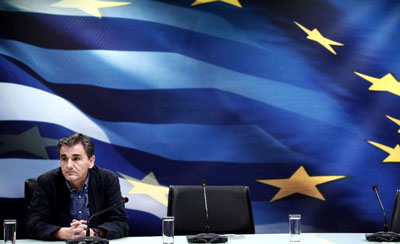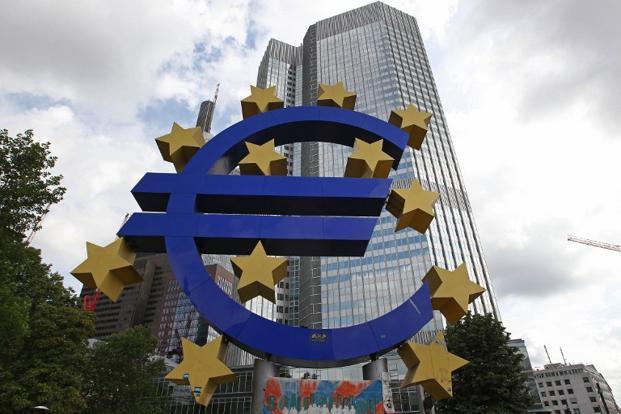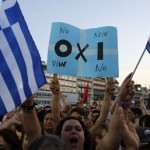Rift Emerges as Europe Gears Up for New Talks on Greece Bailout

Germany continued to maintain a hard line with Athens on Monday, just a day after Greek voters decisively rejected a bailout deal from its creditors. But some European countries showed a willingness to soften the push for austerity that has proved so contentious.
The growing rift among European leaders threatens to complicate any new negotiations, as the Greek government moves to restart talks for an international bailout. It also adds to the pressure on Greece, which is close to financial collapse with both the banking system and the government quickly running out of money.
If a deal is not struck soon, Greece will probably default on a batch of international debts this month and face even more trouble paying civil servants and pensioners. Should Greece ultimately run out of euros, it could be forced to issue a parallel currency or i.o.u.s to pay its domestic bills, prompting it to leave the euro currency.
The country’s financial state is growing increasingly dire.
As Greek banks faced a shortage of cash, the European Central Bank decided on Monday to extend just enough of an emergency lifeline to keep them from failing. But the amount, about 89 billion euros, will not necessarily be sufficient to keep the money flowing to depositors.
Faced with a funding crisis, the government extended a weeklong bank holiday through Wednesday and said that a withdrawal cap of €60, or $67, per day from A.T.M.s could be tightened. On Monday, long lines formed again at cash machines throughout Athens as people continued to withdraw whatever funds they could.
Prime Minister Alexis Tsipras of Greece has moved quickly to take advantage of the vote results, making the first steps toward conciliation with the country’s creditors.
The combative finance minister, Yanis Varoufakis, abruptly resigned at Mr. Tsipras’s behest. He was replaced by Euclid Tsakalotos, an Oxford-educated economist who took over from Mr. Varoufakis as Greece’s lead negotiator in April.
“I won’t hide the fact that I’m nervous and anxious,” Mr. Tsakalotos said at his swearing-in Monday. “I understand that I’m assuming my post at a difficult time.”
The prime minister also persuaded most opposing political parties to back his basic demands from the country’s creditors.
After a six-hour meeting, the leaders of Greece’s five main political parties issued a statement saying they wanted any negotiation to include a discussion of relief from the country’s debt load — a key sticking point with creditors. They are also pushing for immediate help to keep the banks afloat, quick economic aid to tackle unemployment and new bailout money to cover current debt obligations.
In return, they said, Greece would be willing to deliver “credible reforms based on the fair distribution of the burden and the promotion of growth with the smallest possible recessionary impact.”
But the impasse over a bailout threatens to take on bigger dimensions, with implications for European unity.
Germany, the eurozone country to which Greece owes the most money, remained resistant. A spokesman for the Finance Ministry said Berlin saw no new basis for negotiations with Athens at this point. The spokesman for Angela Merkel, Germany’s chancellor, said that while Greece was still in the eurozone, it was up to Athens to determine whether the country would stay.
Despite Germany’s tough stance, other European leaders seemed eager to avoid the specter of a Greek exit from the euro. While officials in France and Brussels said on Monday that they were unhappy and dumbfounded with the vote, they held the door open to the possibility of a compromise between Greece and its creditors.
At a news conference in Brussels on Monday, the European Commission’s vice president for euro affairs, Valdis Dombrovskis, said that the vote in Greece would “dramatically weaken” the country’s negotiating position with creditors and had made things “more complicated.”





























